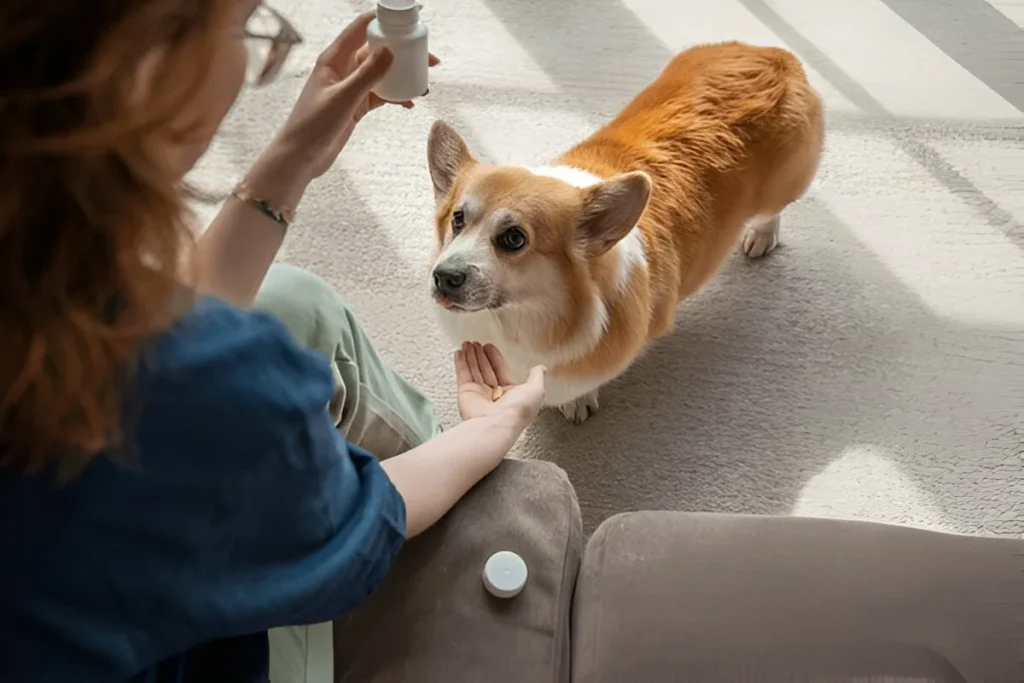-
Kutchina service center, Kolkata - 700010
Kutchina service center, Kolkata - 700010

Probiotic supplements for dogs support digestion, immunity, and overall health. Learn how a reputed pet clinic guides pet owners in choosing safe and effective options.

When it comes to a dog’s health, most owners focus on vaccinations, diet, and exercise. However, what often gets overlooked is gut health. The digestive system isn’t just about processing food—it also houses a large portion of the immune system.
An imbalance in gut bacteria can lead to:
This is where probiotic supplements for dogs play an essential role.
Probiotics are live beneficial bacteria that help maintain a healthy balance in the digestive tract. Just as humans take probiotics for improved digestion, dogs can also benefit from them in multiple ways.
Some commonly used strains in canine probiotics include:
A large portion of the immune system is located in the gut. Probiotics enhance immune response, helping dogs fight infections naturally.
By strengthening gut health, probiotics may reduce allergic reactions, especially those related to skin irritations and food sensitivities.
A balanced digestive tract allows better absorption of proteins, vitamins, and minerals, ensuring optimal growth and energy.
Older dogs often suffer from weaker digestion. Probiotics help them maintain consistent bowel movements and reduce age-related gut problems.

Not all probiotics are created equal. Factors to consider include:
If your pet shows these signs, a vet may recommend adding probiotics to their routine.
Apart from supplements, certain foods can naturally introduce beneficial bacteria:
⚠️ Important: Not all human probiotic foods are safe for dogs. Always check with a professional before feeding.
While generally safe, probiotics may cause temporary digestive changes like mild bloating or gas during adjustment. Risks increase if supplements are low-quality, contain harmful additives, or are given without professional advice.
Pet owners often ask whether probiotics should be used daily or only during health issues. The answer depends on your dog’s condition:

Q1: Can I give my dog human probiotics?
Not recommended. Dogs require specific strains suited to their digestive system.
Q2: How long does it take to see results?
Usually within a few days to a couple of weeks, depending on the condition.
Q3: Are probiotics safe for puppies?
Yes, but only under veterinary guidance, as puppies have sensitive systems.
Q4: Should probiotics be given with food?
Yes, most work best when taken with meals for proper absorption.
Q5: Can probiotics replace medication?
No, they are supportive, not substitutes. They work alongside veterinary treatment for better outcomes.
Choosing probiotic supplements for dogs can be overwhelming with so many options on the market. The right choice depends on your dog’s age, health condition, and dietary needs. That’s why professional advice is crucial. Pet parents in Kolkata often turn to the Best Pet Clinic in Kolkata – APC Pet Clinic for reliable, vet-approved solutions tailored to their furry companions.
Dogs deserve more than just food and exercise—they need balanced gut health for overall wellness. Probiotic supplements for dogs have emerged as a safe, natural way to boost digestion, immunity, and vitality. When chosen carefully and guided by expert advice, they can transform a pet’s quality of life.